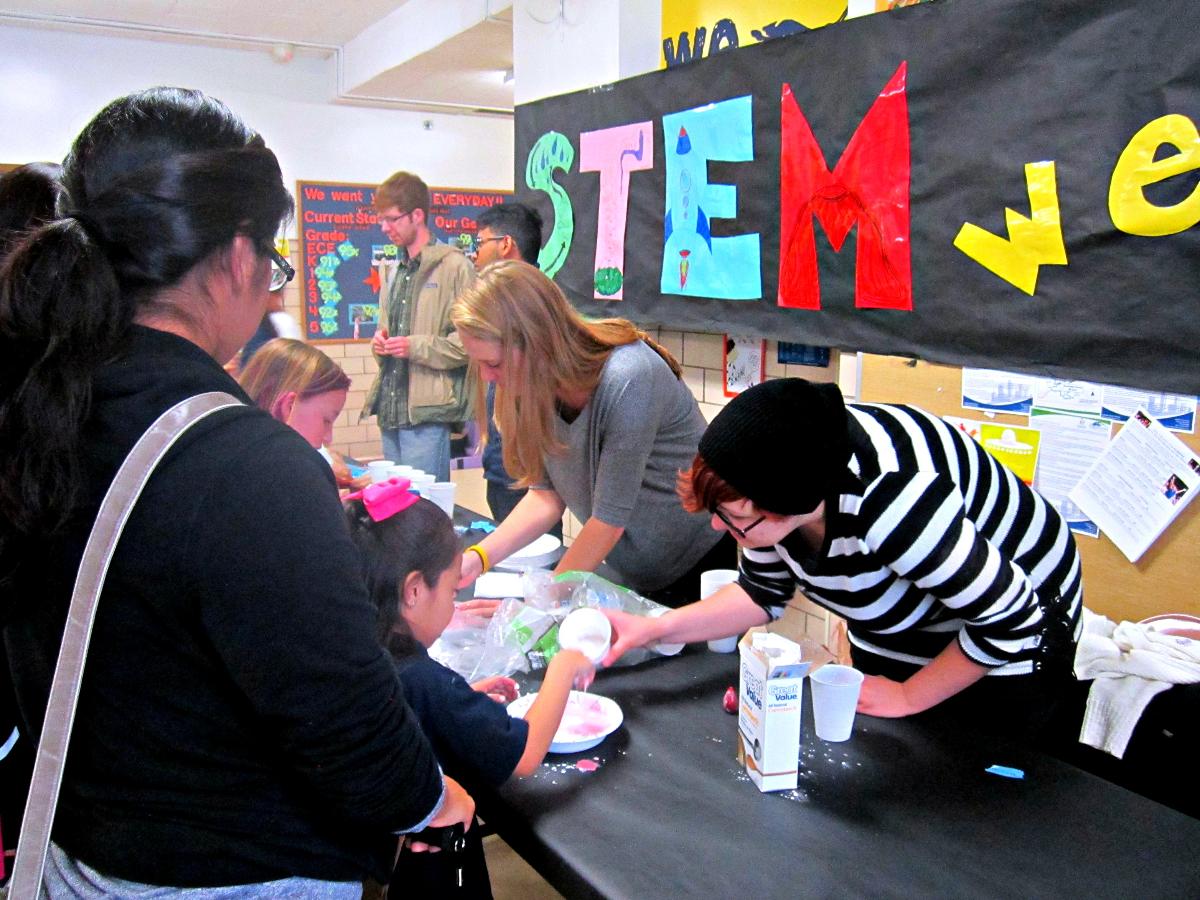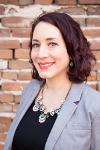-
Teaching Philosophy
-
I believe the value in a college education lies in students’ ability to process new information and think critically about it, therefore the goal of the courses I teach is not to assess students’ ability to regurgitate material from lectures or readings, but rather to assess students’ ability to adapt new information to their life experiences: past, present, and future. Students’ learning in and out of the classroom does not exist in a bubble outside of themselves, their career goals, or their aspirations. It is my goal to aid students in developing the skills to apply their learning to their lives. I employ a variety of teaching methods and assignment structures to measure student learning in a range of ways to accommodate different learning styles.
-
Teaching Expertise
-
Topics
- Human dimensions of natural resources
- Group communication, public relations
- Informal education, interpretation, outreach
- Civic engagement
- Community organizing, social justice
- Community engagement, community wellness
-
Pedagogies, Methods, and Approaches
- Community-engaged learning (e.g. service learning)
- Online
- Hybrid
- Flipped
- ePortfolios
- Audio assignments
-
Current Classes I Teach
-
AUTUMN QUARTER
AH/SS 2581, Denver Urban Issues and Policy
A strong democracy depends on its members to use their power, knowledge, ethics, and strengths to identify problems and work together to build stronger, healthier communities for all people. As members of the Denver community, we have the responsibility and right to investigate important issues and co-create solutions that center equity and inclusion. Taking public action means different things to different people depending on what they care about and how they perceive their strengths, skills, and talents. The aim of this course is three-fold. First, the course will introduce you to some of the most critical issues facing Denver and local efforts to address those issues. Second, the course will provide the space for you to explore pathways through which you might take action as well as develop the skills you need to take action effectively. Third, the course will prepare you for a lifetime of civic learning and action by creating a supportive environment where you will practice moving through CCESL's four key pathways for community-engaged scholarship and learning on a weekly basis: THINK, CONNECT, ACT, REFLECT.
WINTER QUARTER
AH/SS 2580, Community Organizing, University of Denver
A strong democracy depends on its citizens to use their power, knowledge, ethics and strength to identify problems and work with others to build stronger, healthier communities for all people. In this course students learn about the history of community organizing in the United States and learn about and apply public skills to conduct a collaborative organizing project. The first half of the quarter is focused on learning the community organizing model through presentations, activities, critical reflection, guest speakers, and discussion. During the second half of the quarter, students in the class lead the class and create their own assignments in a workshop style environment as they collectively develop an organizing project.
HNRS 2400, Community-Engaged Scholarship, University of Denver
Community engagement aims to get universities into collaborative relationships with communities for the mutually beneficial exchange of knowledge and resources in a context of partnership and reciprocity. In this course students will learn about community-engaged methods - the history, approach, and tools of working toward collaborative social change. Students will collaborate with a community partner through CCESL’s Scholar Shop to apply community-engaged methods of research and/or creative work to address a project identified by the partner. By the end of the course, students will have contributed to the public good through the completion of a project meaningful to a community partner while developing the knowledge and skills to forge working relationships built upon mutual trust that bring academic and community expertise together and have the power to result in collaborative change.
SPRING QUARTER
AH/SS 2583, From Public Good Theory to Action, University of Denver
This course is the final course of the three-course sequence offered by the Center for Community Engagement to advance Scholarship and Learning (CCESL). Through this course, you will integrate your personal, professional, and academic goals with a focus on social change culminating in a clear sense of your identity as a public good scholar as well as a personal action plan that you can implement to address a social justice issue of your choosing. You will apply an anti-oppression analysis to your plan including how the Four I’s of Oppression manifest in your selected topic, ways you center the knowledge/voices of the communities most impacted by the injustice/systemic oppression, and how white supremacy shows up in your issue and how the plan could actively work against white supremacy.
-
Previous Classes Taught
-
ACP 3400, Civic Engagement, University of Denver
- Because education has social as well as personal benefits, it carries with it opportunities and obligations for civic engagement. Most people have some desire to be of help to others, but knowing how to help without interfering or being condescending often requires cultivated sensitivity. The Civic Engagement project provides students with an opportunity to identify a community need, learn how that need is or is not being addressed, and get engaged in a particular set of service activities for an agreed upon duration of time. Students may receive help with finding appropriate settings through DU’s Center for Community Engagement and Service Learning (http://www.du.edu/ccesl. Students will receive help in how to identify service-learning opportunities in their local communities or through their employers. Students will be expected to keep and submit a reflective log on the nature of their activity and the learning they have derived from it.
- Class size: 5-20 students
- Format: Online (asynchronous) & Hybrid sections
AH/SS 2582, School Based Civic Engagement, University of Denver
- This course provides opportunities for students to engage with an urban youth organization that challenges students to think about how our public schools are preparing students to be effective citizens. We also examine the role that universities and communities can and should play in the education process. Students take a critical look at their own education experience and compare this with the education experience of those with whom the students work with for the quarter. This course is arranged as a 10-week community learning project. Classes include group discussions and activities based on the assigned class topic and readings along with service learning experiences in Denver Public Schools.
- Class size: 15 students
- Format: Traditional
WELL 2014, Community & Social Wellness, University of Denver
- This course helps students explore their own perspectives and identities in terms of community and social wellness. Students explore different facets of the community from a development approach to analyze critically what determines the relationship between community wellness and social wellness across time, the life cycle, socio-economic boundaries, cultures and communities. There are both research and service components to the course. An emphasis is placed on informed discussion, working together, sensitivity to others' perspectives, and creating greater awareness of our power to effect change in our community and our world.
- Class size: 30 students
- Format: Traditional
NRRT 360, Group Decision Making in Natural Resources, Colorado State University
- This class provides an overview of communication processes involved in small group interactions and collaborative decision-making. Students develop an understanding of group dynamics, decision-making, and problem solving. Students develop competencies for future group decision-making experiences through (1) exposure to theory, (2) engaging in group processes through the course service-learning component, and (3) indentifying and evaluating behaviors that facilitate and/or impede group decision-making.
- Class size: 20 students
- Format: Traditional
NR 400, Public Relations in Natural Resources, Colorado State University
- Through exposure to communication theory as well as real world examples, students develop an understanding of the ways in which public relations can be utilized to convey natural resource and environmental issues to diverse audiences. Additionally, students are encouraged to cast a critical eye on the use of public relations techniques including the ethical and legal responsibilities of PR practitioners. Through the semester long service-learning component, students complete a public relations campaign for their community partner.
- Class size: 20 – 45 students
- Format: Traditional
NRRT 330, Social Aspects of Natural Resource Management, Colorado State University
- Through readings, lectures, and guest panels on social theory and management frameworks, students dissect current natural resource management issues. Guest panels are created in collaboration with the CSU Student Diversity Programs and Services and the International Programs Office to present students with diverse perspectives on natural resource and outdoor recreation issues.
- Class size: 45 students
- Format: Traditional
NRRT 231, Principles of Park & Protected Area Management, Colorado State University
- By the end of the semester students are able to demonstrate an understanding of the structure and organization of the land management agencies in the United States and internationally; demonstrate a working knowledge of the history, principles and philosophy of the agencies involved; and demonstrate an understanding of the variety of current and past issues associated with park and protected area management.
- Class size: 110 students
- Format: Traditional
NRRT 487V, Internship, Colorado State University
- Students participate in the “Partners with Professionals” program allowing them to connect classroom theory with practical application.
- Class size: 80 students
- Format: Hybrid
-

Students in my School-Based Civic Engagement class leading science activities during STEM week at Force Elementary school.
